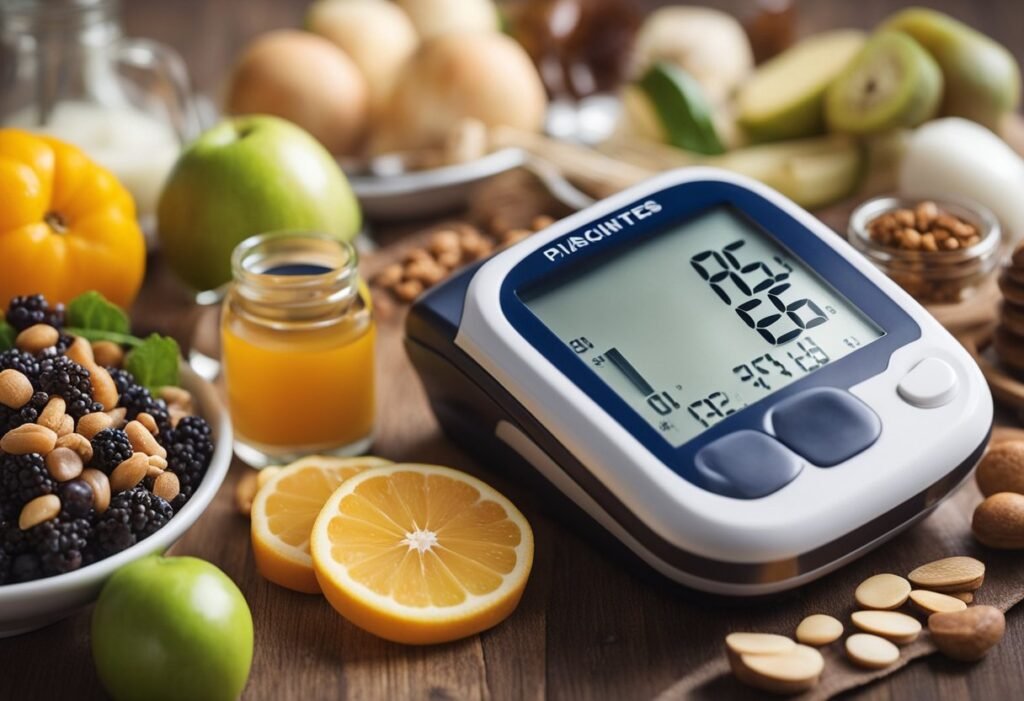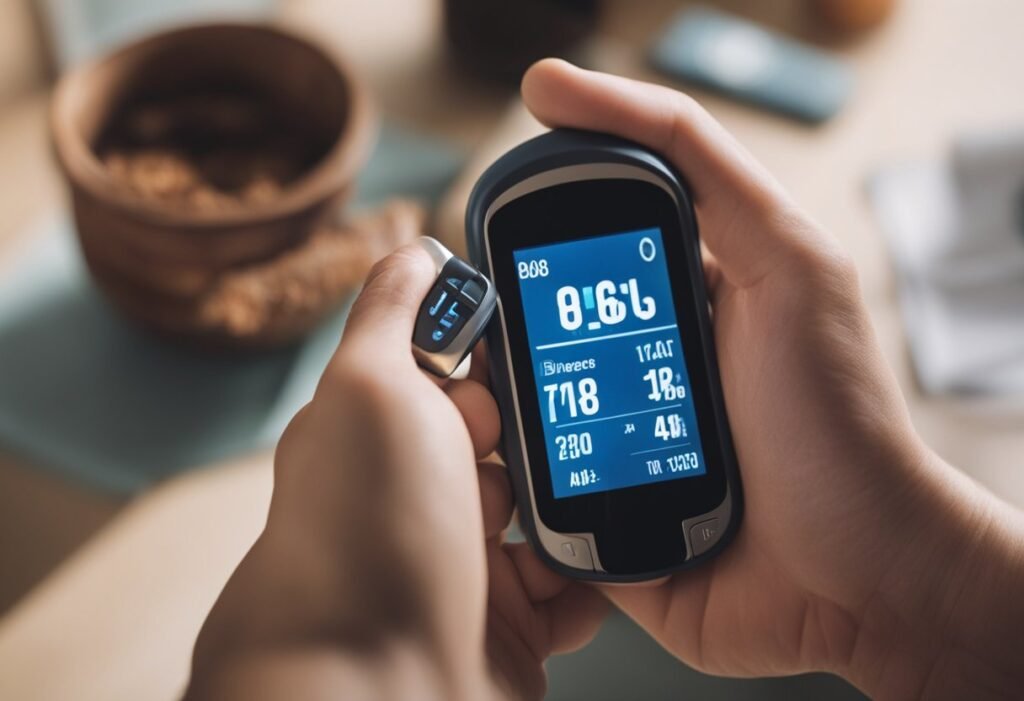Diabetes Mellitus is a disease that affects the metabolism of glucose where the patient has high levels of blood sugar, the treatment includes; medication, diet (Low carb foods, Low sugar foods, Low glycemic index juices) and exercise. But there is a mounting literature that indicates that alternative forms of care should be incorporated into the conventional diabetes care. Holistic care means a care that focuses on the patient’s body, emotions, and spirit a form of care that tends to be more specific and personalized to the patient’s needs. Thus, the combination of conventional medical treatments with other types of care may be beneficial for patients with diabetes and their condition.
The other aspect of care in diabetes management entails alternative practices such as relaxation, stress management, and other integrative approaches that are intended to benefit the patient in addition to drug treatment. This holistic model recognizes the fact that other aspects of the patients’ lives such as their diet, physical activity, emotional and social support all have an impact on the management of diabetes. It is not only concerned with the regulation of the blood sugar levels but also with the enhancement of the general health of the diabetic patient. In this way, the holistic care is intended to decrease the possibilities of the adverse events and improve the quality of life of the diabetes patients.
Understanding Diabetes

Diabetes is a chronic health condition where the body cannot regulate blood sugar levels effectively. Proper management requires a clear understanding of the types, symptoms, and risk factors.
Types of Diabetes
There are primarily three types of diabetes:
- Type 1 Diabetes: The body’s immune system attacks and destroys insulin-producing beta cells in the pancreas. Usually diagnosed in children and young adults.
- Type 2 Diabetes: This is the most common form and occurs when the body becomes resistant to insulin or doesn’t produce enough. It’s often associated with older age, obesity, and physical inactivity.
- Gestational Diabetes: Develops in some women during pregnancy and typically resolves after birth, but it increases the risk of Type 2 Diabetes later in life.
Symptoms and Diagnosis
Key symptoms of diabetes include:
- Increased thirst and urination
- Intense hunger
- Unexplained weight loss (more common in Type 1)
- Fatigue
- Blurred vision
- Slow-healing sores
Diagnosis is typically confirmed by one or more of the following tests:
- Fasting Plasma Glucose (FPG): Measures blood sugar after an overnight fast.
- Oral Glucose Tolerance Test (OGTT): Measures blood sugar before and after a sweet drink consumption.
- Hemoglobin A1c Test: Indicates average blood sugar levels over the past 2 to 3 months.
Risk Factors
Risk factors for diabetes vary by type:
- Type 1: Family history of Type 1 diabetes, presence of certain genes indicating susceptibility.
- Type 2:
- Overweight or obesity
- Age 45 or older
- Family history of Type 2 diabetes
- Physical inactivity
- Race or ethnic background
- Gestational:
- Previous gestational diabetes
- Overweight before pregnancy
- Family history of Type 2 diabetes
- Being over the age of 25 when pregnant
- Race or ethnic background
Understanding these elements is crucial for the effective treatment and management of diabetes, including the holistic care approach.
Principles of Holistic Care

In the management of diabetes, holistic care transcends traditional medical treatments by incorporating alternative medicine and a comprehensive review of an individual’s well-being. The following are key principles:
- Individuality: Every person’s experience with diabetes is unique.
- Bio-psycho-social-spiritual approach: Beyond physical health, emotional, social, and spiritual needs are considered.
- Person-Centered: Treatments are tailored to fit personal preferences, behaviors, and lifestyle.
Core Values of Holistic Care:
- Dignity and Respect: Acknowledging and valuing patient perspectives and choices.
- Empowerment: Encouraging patients in self-management and informed decision-making.
- Balance: Aiming for equilibrium in mind, body, and spirit to manage the illness.
- Integration of Care: Coordinating different therapies and healthcare practices.
Therefore, it is important to address the whole patient and not only the diabetes in patients. For instance, regarding the aspect of emotional health, it has been proved that it has a close relationship with disease management; therefore, it has to be considered. Likewise, knowing and implementing the patient’s environment and social context can help in the improvement of the adherence to the treatment and the results.
The above principles help the healthcare providers to shift their focus from mostly delivery of drugs to the transformation of the system that is consistent with the needs of the patient. This is through the assessment of physical conditions, encouraging healthy lifestyles and regular, consistent and individualized evaluation.
Nutritional Management

Nutritional practice is an essential part of diabetes care which includes special diabetes diet recommended by the dietitian, carbohydrate counting, and appropriate use of supplements and herbal medicines for the control of blood glucose levels.
Dietary Guidelines
Individuals with diabetes should consume a balanced diet rich in nutrients, emphasizing a variety of fruits and vegetables, whole grains, lean proteins, and healthy fats. The American Diabetes Association suggests the following plate method to help with portion control and meal planning:
- Non-starchy Vegetables: Half of the plate
- Lean Protein: One quarter of the plate
- Carbohydrates: One quarter of the plate
- Healthy Fats: In moderation
Foods high in fiber, such as leafy greens and whole grains, are particularly beneficial as they can help with blood sugar management.
Carbohydrate Counting
Carbohydrate counting is one of the most significant techniques for maintaining proper blood sugar levels. It is imperative to know how to read labels and decide on servings of food people consume. Here is how to count carbohydrates:
- Identify the total carbohydrate amount per serving.
- Adjust the serving size if necessary.
- Calculate the total carbohydrates based on the actual serving size consumed.
Example: If a label says 30 grams of carbohydrates per serving and two servings are consumed, the total carbohydrate intake would be 60 grams.
Ever had a high carb meal and felt sleepy and tired afterwards? Even though this can also happen to a person with no diabetes but it is more common in people with people with type 2 diabetes. So controling your carbs is crucial for every meal you eat.
Supplements and Herbs
Supplements and herbs can be beneficial for persons with diabetes, but they should never be used instead of regular medication and treatment. It is recommended that one should consult a healthcare provider before taking any supplements. Supplements and herbs that are frequently mentioned in diabetes studies include the following:
- Cinnamon: Some studies suggest it may help improve blood sugar levels.
- Alpha-lipoic acid: An antioxidant that may help lower blood sugar levels.
- Chromium: Often used to improve glucose metabolism.
Juices from Vegetables and Low Glycemic Fruits
Juices, particularly those made from vegetables and low-glycemic fruits, can be a beneficial addition to the diet of someone managing diabetes. These beverages can provide essential vitamins, minerals, and other nutrients without causing a rapid spike in blood sugar levels, which is crucial for individuals with diabetes. It’s important to focus on juices that are low in natural sugars and high in fiber, as fiber helps slow down the absorption of sugar into the bloodstream, preventing sudden increases in blood glucose levels. For detailed information read our article about Good Juices for Diabetes.
It is crucial to note that efficacy and safety can vary, and the Food and Drug Administration (FDA) does not regulate supplements as strictly as medications.
Physical Activity and Exercise

Regular physical activity is crucial for managing diabetes effectively. It can help regulate blood sugar levels, reduce cardiovascular risk, and improve overall health.
Exercise Recommendations
Patients with diabetes should tailor their physical activity plans to their individual needs. The following table outlines basic guidelines for different intensities of exercise:
Intensity Frequency Duration Low Daily ≥ 60 min Moderate 5 days/wk 30 min High 3 days/wk 20 min
It is essential to start with manageable activities and gradually increase intensity. Healthcare providers can help set realistic goals and develop a safe, effective exercise regimen.
Benefits of Regular Activity
Engaging in regular physical activity can offer numerous health benefits for individuals with diabetes:
- Blood Sugar Control: Helps improve insulin sensitivity and lowers blood glucose levels.
- Cardiovascular Health: Reduces risk factors for heart disease by improving blood pressure, cholesterol levels, and blood circulation.
- Weight Management: Aids in maintaining a healthy weight or weight loss, decreasing the body’s insulin resistance.
Stress Reduction
Stress management is very important in the overall care of diabetes due to the fact that stress can affect the management of the disease. It is also used in combating hyperglycemia and hence enhances the quality of life of the patients. In this case, stress reducing exercises such as mindfulness, meditation, yoga and tai chi are very useful.
Mindfulness and Meditation
Stress management, in its entirety, can be done through mindfulness and meditation, which are known ways that can help those with diabetes. It is about the relationship of the mind and the body, an attempt to achieve a certain level of serenity. Research has also depicted that mindfulness approaches and meditation are beneficial in decreasing the blood sugar level due to stress-induced hyperglycemia.
- Techniques:
- Mindful breathing
- Progressive muscle relaxation
- Guided imagery
- Benefits:
- Enhanced emotional regulation
- Improved focus and concentration
- Decreased anxiety levels
Yoga and Tai Chi
The smooth and Graceful movements of the yoga and tai chi are very helpful in the management of stress and has other health benefits. Both practices can increase the flexibility, balance, strength, and also have a positive impact on the mental health and reduce the level of stress.
- Approaches:
- Hatha yoga for beginners
- Vinyasa for more dynamic sequences
- Tai Chi Qigong for combined mind-body practice
- Physical benefits:
- Lower blood pressure
- Improved glycemic control
- Enhanced cardiovascular health
Complementary Therapies

Alternative medicine has been used to treat patients with diabetes and other diseases as patients looks for total care. It is important to stress that these therapies are not intended to eliminate the way of treating a certain disease with conventional methods but to complement them to improve the quality of life.
Acupuncture
Acupuncture, a key component of Traditional Chinese Medicine, involves the insertion of fine needles into specific body points. For those with a diabetes mellitus, it is considered to potentially aid in regulating blood sugar levels and alleviating neuropathy pain, a common diabetic complication. Diabetic neuropathy can cause all sorts of complications including effects on feet e.g. dry and itchy feet, swollen feet, calluses on feet etc.
Acupuncture is one of the therapy in Traditional Chinese Medicine which needles are inserted into the specialized parts of the body. For those with diabetes mellitus, it is believed to have the potential of helping in regulating blood sugar levels and managing diabetic neuropathy which is a form of pain that affects diabetic patients. There are several side effects of diabetic neuropathy and this can affect the feet for instance, dry skin, itching of the feet, swelling of the feet, callous formation on the feet among others.
Biofeedback Therapy
Hence, biofeedback therapy provides a way for patients to learn how to control some of their physiological processes. Through feedback of blood glucose and stress data, people can change their behaviour and, thus, their diabetes control and stress-induced hyperglycemia and variability.
Medication Management

Although this blog is mainly based on Holistic Healthcare, if you have neglected your health for a long time, then conventional therapy and conventional medicine may be required. Therefore, safe medication management could be relevant for patients with insulin resistance. It entails management strategies that take into account the type of diabetes in addition to the patient’s characteristics.
Insulin Therapy
For people with type 1 diabetes and some with type 2 diabetes, insulin therapy is essential. Insulin must be dosed accurately and timed with meals. The table below outlines different types of insulin.
Insulin Type Onset Peak Duration Rapid-acting 15 min 1 hr 2-4 hrs Short-acting 30 min 2-3 hrs 3-6 hrs Intermediate-acting 2-4 hrs 4-12 hrs 12-18 hrs Long-acting 1-2 hrs No peak Up to 24 hrs
Patients should receive education on how to administer insulin properly, recognize signs of hypo- or hyperglycemia, and adjust doses based on self-monitoring blood glucose (SMBG) results.
Oral Medications
In type 2 diabetes, oral medications are of different categories and work in different ways to lower the blood sugar level. Metformin which is the most often used first line of treatment works on the insulin sensitivity and decreases hepatic glucose production. Below is a list of medication classes and their primary mechanisms:
- Metformin: Decreases liver glucose production.
- Sulfonylureas: Stimulate pancreas to produce more insulin.
- DPP-4 inhibitors: Prolong the action of incretin hormones, enhance insulin release.
- SGLT2 inhibitors: Reduce glucose reabsorption in the kidneys.
- Thiazolidinediones: Improve insulin sensitivity in fat and muscles.
Each medication has specific indications, doses, and potential side effects that require careful consideration by healthcare professionals.
Monitoring and Technology

The management of diabetes increasingly leverages technology, with a focus on precision in monitoring blood glucose levels and implementing tech-driven improvements in patient care.
Blood Glucose Monitoring
Blood glucose self-monitoring is one of the main components of diabetes control. Patients frequently employ glucometers which are devices that necessitate the collection of blood samples from the fingertips to determine the present glucose level. These measurements are very useful for setting up the individual’s diet, exercise regime, and insulin injection regime..
Continuous Glucose Monitors
CGMs (Continuous Glucose Monitors) are a type of monitoring device which is an improvement over the earlier methods. They give the real-time blood glucose level by placing a sensor under the patient’s skin and help in the modification of the patient’s management plan. CGMs can be used to tell the patient of imminent hypoglycemia or hyperglycemia to prevent diabetic complications.
Education and Self-Management

Education is a major component of the total care of patients with diabetes. Self-management education and support (DSMES) is considered as one of the critical interventions that are vital in enabling people with diabetes. It includes overall approaches in the research and clinical application and educational, psychological, and behavioral aspects and interventions needed for the care and management of the individual on a daily basis. These programs are meant to empower the patients with the needed information and practical measures they can take for better care.
Key Elements of DSMES:
- Knowledge Transfer: Understanding the nature of diabetes, its treatments, and potential complications.
- Skill Development: Learning how to monitor blood glucose, administer medication, and interpret results.
- Decision-Making: Gaining the capacity to make informed choices regarding nutrition, physical activity, and lifestyle adjustments.
- Behavioral Strategies: Adopting and maintaining health-enhancing behaviors through goal-setting and problem-solving approaches.
Benefits of DSMES:
- Improved clinical outcomes such as better glycemic control.
- Enhanced patient confidence in managing their condition.
- Reduction in healthcare costs through decreased emergency visits and hospital admissions.
Some sort of education plan should be presented to each patient to help him or her manage the given diabetes diagnosis and treatment. Regular follow up also assists in consolidating the information provided hence making people to be keen on their health regimes. These approaches to education and support are critical to assisting the patient in managing his or her diabetes more confidently and efficiently.
Community and Social Support

Diabetes care goes beyond medication; it entails a social structure that assists the patient in the management of the disease. It is the patient support groups which offer the patient morale, psychological, and other first-hand experience support.
- Emotional Support: Patients share their struggles and triumphs, which fosters a sense of solidarity. The empathy from peers can alleviate feelings of isolation.
- Psychological Support: Learning how others cope with stress related to diabetes helps patients acquire new strategies for managing anxiety and depression associated with the chronic condition.
- Experiential Sharing: Individuals can exchange tips on daily management, lifestyle modification, and navigating healthcare systems.
In addition to support groups, community resources are valuable:
- Educational Workshops: Patients increase their knowledge about diabetes management, nutrition, and exercise.
- Access to Nutritional Programs: These assist in making healthier food choices integral for blood sugar control.
- Exercise Initiatives: Community centers may offer special programs encouraging physical activity, which is essential in managing diabetes.
The findings also indicate that patients who are socially connected and active within their communities do better. Such networks can greatly enhance a patient’s capacity to self-manage diabetes, through the acquisition of information, the motivation to act and the provision of tangible help from others. Healthcare givers’ support systems recommend that there should be strong community support as part of the overall care for the diabetic patient.
Frequently Asked Questions
The section answers to key questions related to the holistic diabetes control and care, discussing changes in the diet and lifestyle, natural approaches to the disease management, and the peculiarities of the holistic approach compared to the conventional methods.
What lifestyle modifications are recommended for managing diabetes through a holistic approach?
Holistic diabetes care emphasizes the significance of lifestyle changes such as regular physical activity, maintaining a balanced diet, stress reduction techniques, and adequate sleep. These modifications can improve blood sugar control and overall well-being.
What natural remedies are considered effective for blood sugar control in diabetic patients?
Some natural remedies that may support blood sugar management include the use of herbs like cinnamon, fenugreek, and ginseng. Yet, it is crucial to consult healthcare providers before incorporating any natural remedies, as their efficacy and safety can vary.
How does a holistic diabetes management plan differ from conventional diabetes treatment?
A holistic management plan for diabetes integrates a patient’s physical, emotional, and social health, considering factors like diet, exercise, stress, and personal preferences, rather than focusing solely on medication and insulin management.
Can diabetes be effectively managed with holistic nutrition and diet changes?
Diet changes are a cornerstone of diabetes management, and holistic nutrition approaches it by emphasizing whole foods, balanced macronutrients, and mindful eating, with the goal of achieving and maintaining healthy blood sugar levels.
What role do diabetes self-management education and support (DSMES) programs play in holistic diabetes care?
DSMES programs are vital in empowering patients with diabetes to understand their condition, learn self-care practices, and make informed decisions about their health, aligning with the holistic care principles that promote autonomy and comprehensive support.
Are there any holistic practices that help lower blood sugar levels for patients with diabetes?
Yes, holistic health practices such as yoga, tai chi, and meditation may contribute to lowering blood sugar levels by reducing stress and enhancing physical activity. These practices can be integrated into a comprehensive diabetes care routine.







